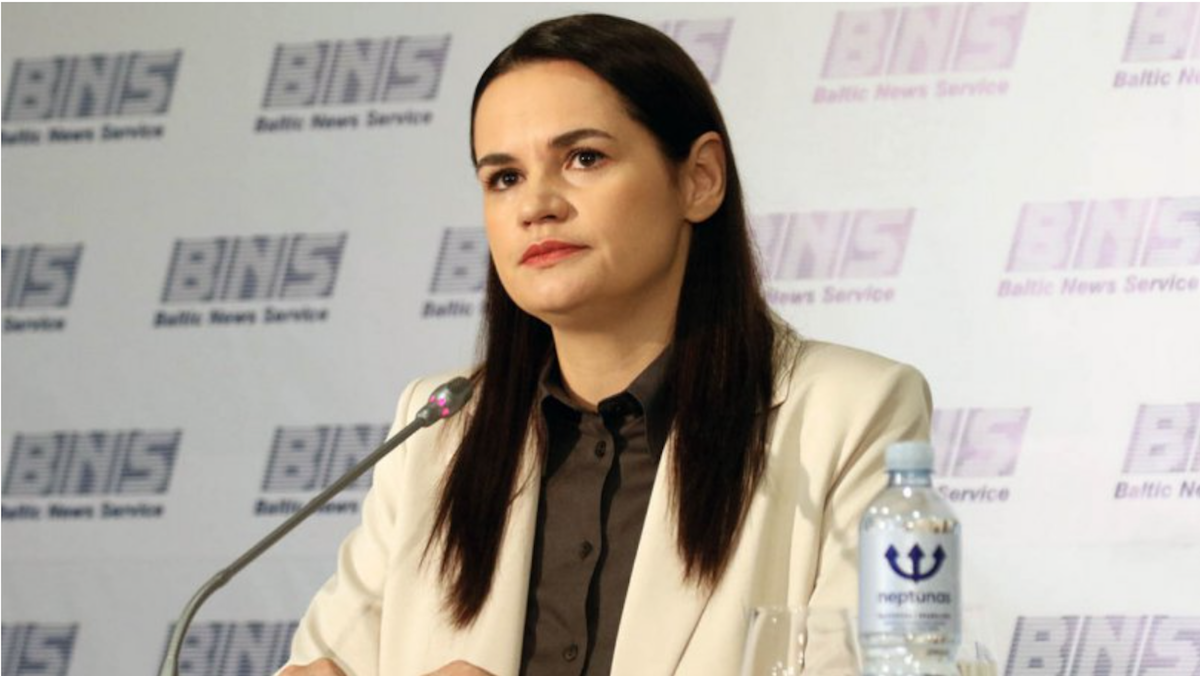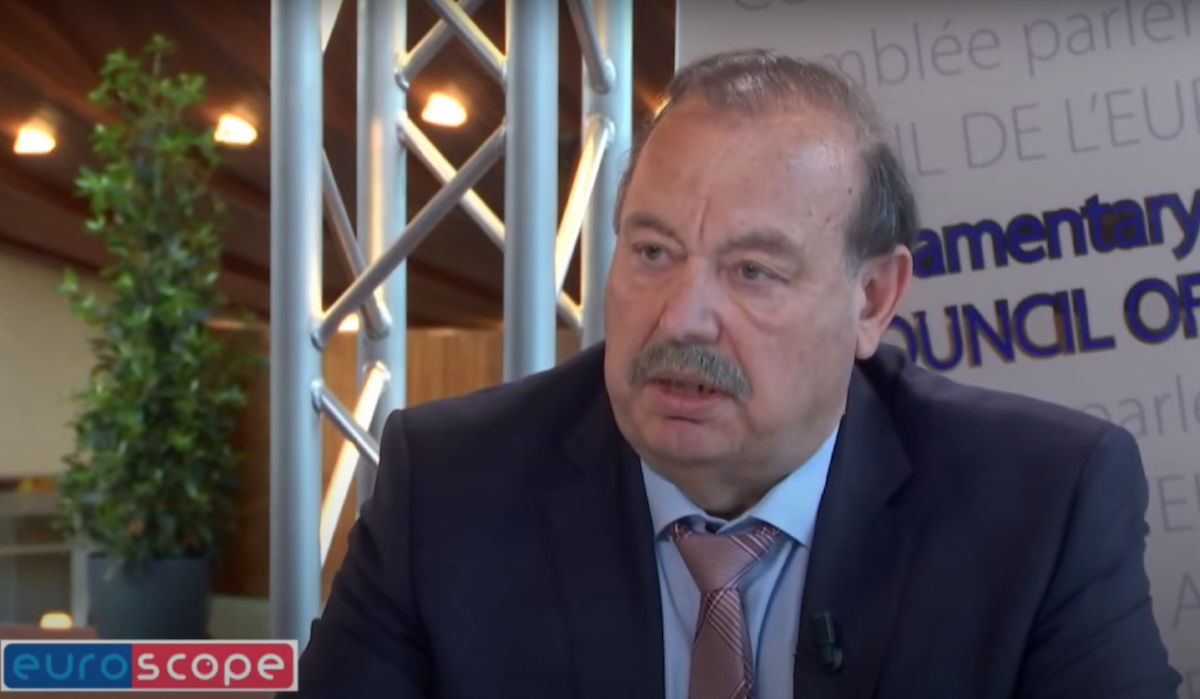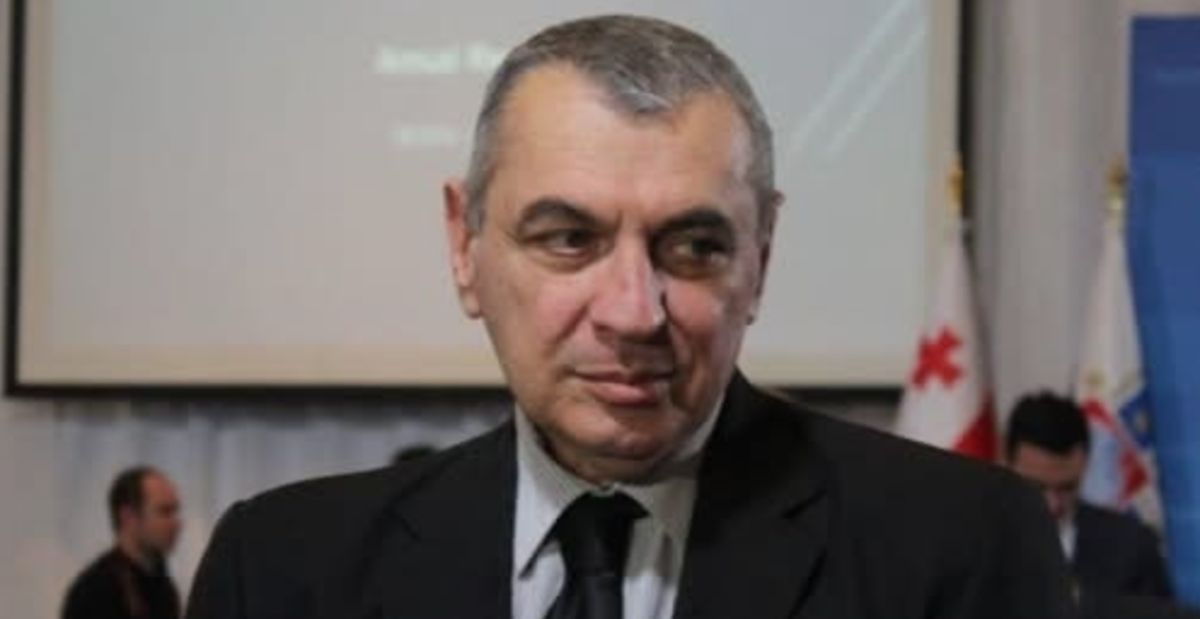Pavel Latushko: 'Georgia is now in same phase Belarus was in back in 2020'
Belarusian opposition figure on Georgia’s future
One of the leaders of the Belarusian opposition, Pavel Latushko, told Radio Liberty that Georgia is currently in the same phase Belarus was in back in 2020.
Latushko draws parallels between Belarus and today’s Georgia, describes what it’s like to live in a country where even a single “like” can cost you your freedom, and warns Georgians that their country “will share Belarus’s fate if it doesn’t stop.”
Pavel Latushko is one of the leading figures of the Belarusian opposition, a former culture minister under the Lukashenko regime and ex-ambassador to France, currently wanted by the Belarusian authorities for an alleged “attempt to seize power” alongside Sviatlana Tsikhanouskaya.
If Latushko returns to Belarus, he faces 18 years in prison. He now serves as the representative for foreign affairs of the Belarusian democratic forces in exile.
What did Pavel Latushko say about Georgia?
“I believe that events in Georgia could very easily follow the same scenario we witnessed in Belarus. The trend is already visible.
Today, that scenario looks like this: over the past four and a half years, more than 600,000 people have been forcibly displaced from Belarus. The sole reason for this is the atmosphere of fear, terror, and repression created by Lukashenko’s regime, especially since 2020. People are fleeing Lukashenko, but the regime is pursuing them even abroad.
If we shift the conversation to a geopolitical level, it’s important to understand that Russia’s goal — even if only formally — is to restore the Soviet Union. The Kremlin uses different methods to achieve this, but its strategic objective is crystal clear. This is also what the war in Ukraine is about — Ukraine refused to submit to Moscow and continues to pay a high price for it.
Belarus plays a key role in this strategy. Lukashenko is a pro-Russian leader who always wanted to be an important figure in the Kremlin and did everything to achieve it. In the end, he miscalculated — instead of becoming a great man, he became a servant of the Kremlin, and Belarus became a complete hostage of Russia.
On paper, my country exists, has a place on the map, and is a member of the UN, but its internal sovereignty is limited, its external sovereignty lost, and its army dismantled. That is the reality of Belarus today.”
We are also witnessing the growing influence of pro-Russian forces in Georgia. In Moldova, there is a constant threat of interference. Armenia, of course, is also considered a target for the Kremlin. I am convinced that Kazakhstan is at risk too.
If these countries fail to develop an effective strategy, their future may resemble the scenarios of Belarus and Georgia — or even worse. That is my forecast as a diplomat — and unfortunately, it is a pessimistic one.
Today, we are all resisting separately — in our own countries, against our own regimes. But what we need is a common strategy. I believe the European Union must take a broader view — not only through the lens of its neighbourhood with Russia but as part of a single space in the fight for freedom and democracy against Russia.
We must use all available resources to counter Russian expansion and pressure — and we must do so together.
If Georgians want to see their future, they should look at Belarus.
As I’ve already said, our internal sovereignty is partially lost, our external sovereignty is fully gone, and our army has been sold, mortgaged, and prepared for handover. Lukashenko supports the war against Ukraine — not in the interests of Belarus, but in the interests of the Kremlin.
What can be done? There are different tools. One of them is sanctions against Belarus. Harsh, crushing sanctions — the kind that can change the regime’s behavior. Not just “pressure”, but a decisive blow.
International legal mechanisms are also needed. We have been trying for five years to launch proceedings in the International Criminal Court to hold Lukashenko accountable. Because when a perpetrator remains in power — not only unpunished, but not even officially recognised as guilty — it breaks the spirit of Belarusians who witness it and undermines their faith in democracy.
In my view, Georgia today is in the same phase that Belarus was in back in 2020. It’s crucial that you do not repeat our mistakes — you cannot imagine how much you’ll regret it.
If you stop now, the regime will grow stronger by the day — through repression, fear, and public apathy.
You still have freedom of speech, opposition parties, and independent media. We no longer have any of that. All opposition structures have been dismantled, media outlets are in exile and labelled as extremist organisations.
Even reading them is a criminal offence, and people can be jailed for simply liking a Facebook post.
We now live under full-scale totalitarianism. If nothing changes, Georgia will face the same fate.
Our aim is to motivate society to fight for independence. But today, in Belarus, it’s impossible to take to the streets. As I’ve said, even a single ‘like’ under the wrong post can land someone in prison.
The country is gripped by fear, demotivation, apathy, and anger. People live in constant anticipation — but many are slowly losing the will to even think about politics.





















